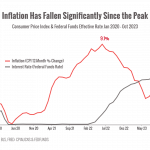Regulators Urge Small Investors to Avoid Non-Traded REITs
 REITs stands for Real Estate Investment Trusts. REITs sell like a stock on the major exchanges and invests in real estate directly, either through properties or mortgages. REITs receive special tax considerations and typically offer investors high yields, as well as a highly liquid method of investing in real estate.
REITs stands for Real Estate Investment Trusts. REITs sell like a stock on the major exchanges and invests in real estate directly, either through properties or mortgages. REITs receive special tax considerations and typically offer investors high yields, as well as a highly liquid method of investing in real estate.
Real Estate is historically a good performing asset class. Allocating approximately 10% of your stock portfolio is a generally prudent choice. However, state regulators are seeing more and more trouble with a certain type of real estate investment: non-traded REITs.
Non-Traded REITs
Unlike normal REITs, non-traded REITs do not trade on a securities exchange. They have several very significant issues:
-
- Non-traded be can very illiquid.
- They can be very difficult or impossible to price on a regular basis.
- It can be difficult to exit the investment.
Front-end fees can be as much as 15% (much higher than traded REITs due to the limited secondary market)
Non-traded REITs buy office buildings, stores, and other properties. They are sold directly to private investors by financial advisors and brokers.
State Securities Regulators Worried
Regulators are concerned that small investors are not fully aware nor understand the risks associated with non-trade REITs. States are on the verge of adopting new restrictions to protect “mom and pop” investors including:
- Limit how much an individual’s net worth could be put into any a single REIT
- Limit the ability of REITs to pay dividends immediately after raising new money (to avoid a Ponzi-scheme like dynamic of paying old investors with new investors’ money)
The State of Massachusetts has brought enforcement actions against brokerages for improper sales of non-traded REITs including
- LPL Financial
- Ameriprise
- Commonwealth Financial
- Lincoln Financial
Source: WSJ








